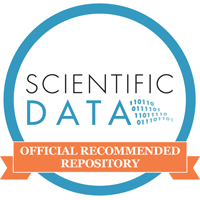ReShare data review procedures
UK Data Service Review procedures
The UK Data Service reviews each data collection submitted to the ReShare repository for disclosure risk, copyright breaches, validity of file formats and level of documentation before publishing the collection. The quality or scientific validity of research data is not evaluated.
All numerical data files and at least a 10% random sample of textual data files are reviewed.
Non-English language data files are checked if a staff member of the UK Data Service is familiar with the language.
Any concerns, changes needing to be made to data files, or requests for additional documentation are communicated to the data depositor for actioning.
Data review comments and actions taken are noted in the data collection metadata record, as provenance information for the data collection.
Review procedures
1. Generic project-level checks:
- project-level metadata and consent forms are checked for legal and ethical information specified by the depositor, that influences data sharing and reuse (e.g. anonymisation carried out; consent in place for data sharing; consent for disclosing participant names,….)
- for qualitative data (interviews, images, video) consent agreements should not preclude data sharing
- copyright status and permissions are checked, e.g. for research where third party data have been used
- for data collections resulting from a RCUK-funded project, that a link to the project record on the Gateway to Research is included in ‘Related resources’
2. Generic file-level checks:
- each file opens without problems
- file formats of data files and documentation files conform to the UK Data Archive’s recommended file formats: http://ukdataservice.ac.uk/manage-data/format/recommended-formats.aspx
- file properties of data files contain no names of people or other disclosive information (typically the case where interviewee name has been used as file name before anonymisation)
- access and licence have been selected in accordance with any confidentiality concerns (e.g. safeguarded data, permission access data) and documentation files are open access
3. Quantitative data file checks
(SPSS, MS Excel, MS Access, csv, …):- no identifying or disclosive variables are in the data file, e.g. people’s names, organisation names, full dates of birth, addresses, place names, detailed job descriptions, income details,….
- no disclosive information remains in string (textual) variables
- no hidden tracked changes remain in MS Excel files
- variable descriptions, labels, codes and values are included in the data file or in a supplementary codebook or documentation file
4. Qualitative data file checks
on random 10% sample of data items (interview transcripts, audio recordings):- no identifying disclosive information remains in text or recording, e.g. people’s names, organisation names, job titles, road names, full date of birth, locations,…..
- no hidden tracked changes or comments remain in a transcript
- ‘blacked out’ or redacted information is not reversible (e.g. as black highlights)
5. Documentation file checks:
- sufficient documentation is available for users to understand and use the data; suggestions may be made for more documentation files to be uploaded; the project record in the Gateway to Research will typically hold final reports and project summaries
- essential documentation includes:
- a ReadMe file for the data collection
- questionnaire form or data dictionary for surveys
- topic list for interviews
- consent form and information sheet
- further desired documentation can be:
- methods descriptions
- how derived variables are created
- data list of interviews
- PDF archive of website materials
6. Related resources checks:
- check URL links are not broken
- for data resources, check access status of such data conforms to archive standard
- if publications are available via the RCUK Gateway to Research, then only that link should be included
External peer reviewer procedures
If you have been invited as peer reviewer to review a dataset in the ReShare repository, follow these instructions to gain access to the dataset to be reviewed:
Skip step 1 if you are already a user of the UK Data Service
1. Register with the UK Data Service
via our registration process
- If you are based at a UK academic institution, simply use your institutional username and password and select your institution from the UK Access Federation list
- If you are based outside the UK, first apply for a UK Data Archive username and password. When your username and password have been sent to you, select UK Data Archive as your organisation from the UK Access Federation list when logging in to ReShare
2. Log in to ReShare
to ensure that you appear on the ReShare repository's list of registered users
3. Inform us that you are now listed as user in ReShare
so we can set your personal profile to 'peer review' role and allocate the dataset to be reviewed to you

